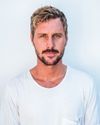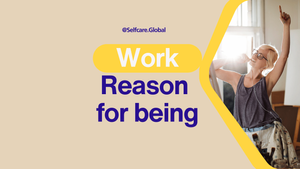Ever felt that Monday morning dread settling into your bones like an unwelcome houseguest? I've been there. After treating over 10,000 patients and witnessing countless stories of burnout and disillusionment, I discovered something profound: work isn't just what we do—it's medicine that can either heal or harm us.
What if I told you that transforming your relationship with work could be the most powerful health intervention you haven't tried? The research is clear: purpose-driven work doesn't just fill your bank account—it fills your wellbeing cup in ways that ripple through every aspect of your life.
Would you be open to exploring how your work might become your most potent daily medicine?
The 3 Major Challenges We're Here to Solve Together
- The Passenger Syndrome: Most people feel trapped in jobs they didn't consciously choose, surrendering 40+ hours weekly to work that depletes rather than energizes them.
- The Purpose-Paycheck Disconnect: You've been told that work is simply a means to fund your "real life" rather than a vital expression of your gifts and medicine for the world.
- The Depletion Cycle: Your current work may be extracting more energy than it returns, creating a deficit that affects your physical health, relationships, and joy.
Would you be curious to discover how others have transformed these challenges within our Self-Care Community? You're not alone in this journey.
The SelfCare Framework: Learn-Do-Embody-Teach
When we approach work as medicine through our framework, transformation happens naturally:
1. LEARN: Understanding work as a healing force
May I ask—have you considered that how you spend your days is how you spend your life? The science of purpose-driven work reveals startling health benefits: studies show that finding meaning in your work can add years to your life, reduce depression by 63%, and significantly improve heart health markers.
What most wellness experts miss is that no amount of green smoothies or meditation can counteract 8+ hours spent daily in work that misaligns with your soul's calling. Your work environment is your primary health environment.
2. DO: Practical steps to transform your work relationship
The journey begins with small, intentional shifts in how you approach each workday. Here are three simple practices you can implement immediately:
Purpose Journaling: Before opening emails each morning, take 3 minutes to write how today's work connects to your deeper purpose. This simple neural reframing activates reward pathways that enhance wellbeing hormones.
Value Alignment Check: Identify one core value (like creativity, connection, or service) and intentionally express it through one work task today, no matter how mundane it might seem.
Contribution Awareness: End each day by acknowledging three specific ways your work contributed value to others. This practices rewires your brain to recognize purpose, even in challenging environments.
These practices have helped thousands in our community transform their relationship with work without necessarily changing jobs. The full framework in the SelfCare Book explores this medicine in greater depth.
3. EMBODY: Becoming someone whose work and purpose are inseparable
Remember: we become what we consistently do. When you practice seeing work as medicine daily, you'll gradually transform from someone who "has a job" to someone who "brings their medicine to the world" through their work.
This identity shift doesn't happen overnight, but as you integrate these practices, you'll notice profound changes in how you experience work. Many in our community report that tasks that once drained them now energize them—not because the tasks changed, but because their relationship to those tasks transformed.
4. TEACH: Creating ripples of purposeful work around you
Once you've experienced the transformation of work as medicine, you naturally become a catalyst for others. By modeling a new relationship with work, you create permission for colleagues and loved ones to explore their own medicine.
This ripple effect extends far beyond your immediate circle. When enough people bring their authentic medicine to their work, entire organizations and communities transform. This is how healing happens at scale.
The Paradox of Purpose-Driven Work
Here's what most career advisors get wrong: Purpose isn't found in what you do—it's found in how you do it. Some of the most miserable people I've worked with had "dream jobs" on paper, while others found profound fulfillment in seemingly ordinary roles.
The difference? One group was trapped in passenger mode, following external definitions of success. The other group took the driver's seat, consciously choosing how they showed up regardless of circumstances.
Would you be open to exploring which group you're in right now?
Three Transformational Shifts in Your Work Medicine
- From Depleting to Regenerative: Notice which aspects of your work naturally energize you. These are clues to your authentic medicine. Can you intentionally expand these elements by just 1% each day?
- From Transaction to Transformation: What if each interaction at work became an opportunity to both give and receive medicine? Simple shifts in presence can transform routine exchanges into meaningful connections.
- From Separation to Integration: The artificial boundary between "work life" and "real life" creates suffering. When your work becomes an authentic expression of who you are, this boundary dissolves, creating wholeness and coherence.
Your Next Step: From Work Dread to Work Medicine
The transformation from dreading work to experiencing it as medicine begins with a simple question: What small shift can you make tomorrow that would bring 1% more purpose and meaning to your workday?
This isn't about grand gestures or dramatic career changes. It's about subtle shifts in perception and practice that compound over time, eventually transforming your relationship with how you spend most of your waking hours.
Ready to explore deeper? Join our Self-Care Community where thousands are supporting each other in this journey, or dive into the Work as Medicine chapter in the SelfCare Book.
Your work matters. Not just what you produce, but how you show up. And that showing up is medicine—for you and for our world.
Key Research References:
- Hill, P. L., & Turiano, N. A. (2014). Purpose in life as a predictor of mortality across adulthood. Psychological Science, 25(7), 1482-1486.
- Koizumi, M., et al. (2023). Purpose in life and reduced risk of cardiovascular disease mortality: A longitudinal cohort study. Journal of Behavioral Medicine, 46, 302-311.
- Dolan, P., et al. (2022). The relationship between meaning and purpose at work and job satisfaction: A meta-analysis. Journal of Happiness Studies, 23(1), 389-411.
REFERENCES
This is directly referenced from the Amazon best-selling SelfCare Book "Lifestyle Medicine For the People" by Rory Callaghan. If you would like to read more content like this, grab the free online chapters of the book or a hard copy.
We have done our best to reference everyone's expert opinions, peer-reviewed science, and original thoughts, all references available here and referenced in the text.
We also understand that most thoughts are not our own and there is a collective unconsciousness, unconsciousness, and universal mind stream of energy that is always at work. How our references are sorted and filtered is here.
This article is for informational purposes only and should not replace professional medical advice. Always consult with your healthcare provider before beginning any new health regimen.





